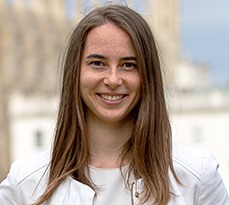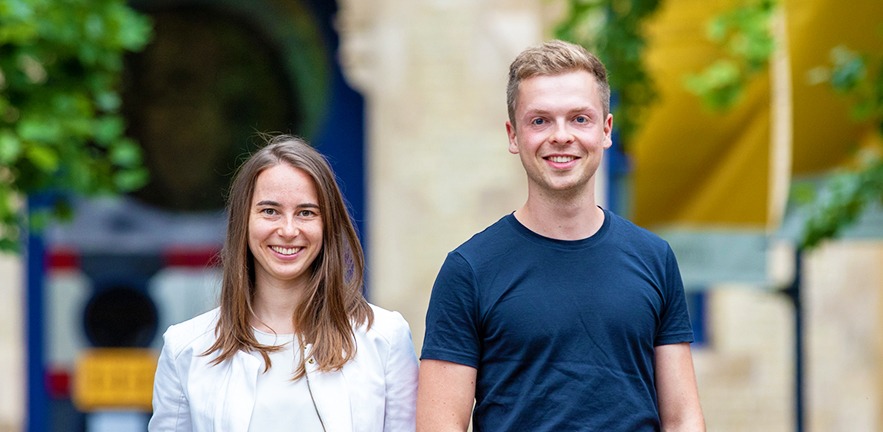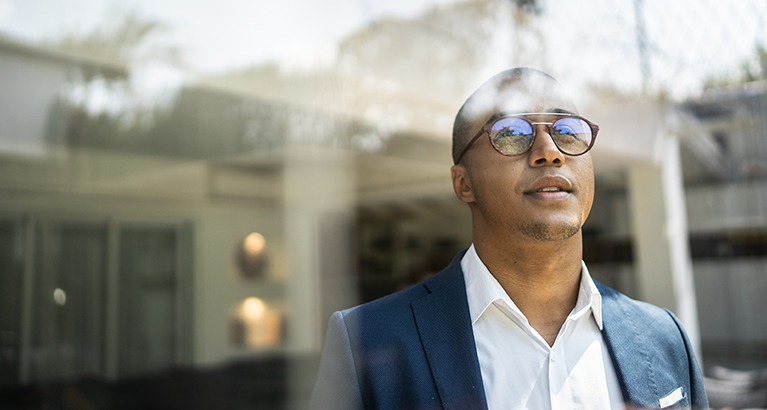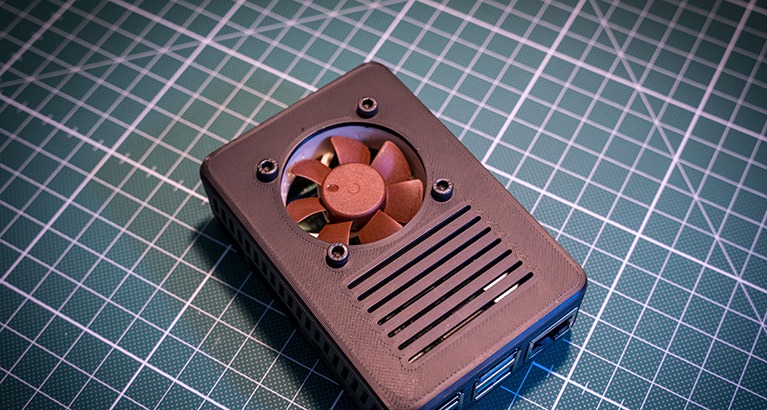In 2019, Nicola Filzmoser (PGDE 2019) co-founded Happyr Health, an app to help young people manage chronic pain. Nicola spoke to us about her motivation and goals.
Chronic pain can have a massive impact on everyday life. In addition to the physical pain, there are the associated mental health conditions, such as anxiety and depression. For younger people in particular, the emotional response to chronic pain – fear, anger, stress and a feeling of isolation – is difficult to manage. Nicola Filzmoser is only too aware of this, having suffered from debilitating migraine from the age of 4.
Young migraine sufferers don’t get the early support they need

Determined to help young migraine sufferers and show them that they, too, can find joy in their lives, despite having a chronic condition, Nicola and her partner, Cornelius Palm (both PGDE 2019), founded Happyr Health, an app that primarily provides emotional support to adolescents living with migraine. “Emotional support is needed in pain management to help people understand and respond in the best way possible to their pain, because a huge range of mental health conditions are associated with migraine,” says Nicola. She continues, “nearly 70% of adolescents suffering from migraine experience anxiety and many of them also depression.”
Chronic pain is like a dragon you have to live with but, instead of just fighting it with a pill, with medication, you can learn to tame it, making living with this dragon easier and more joyful
The app draws on the expertise of a specialised team comprising software developers, artists and, especially on the medical side, a large range of advisors from the fields of psychology and neurology, as well as researchers working with the Leeds Teaching Hospitals NHS Trust and the University of Stirling, using techniques from cognitive behavioural therapy and positive psychology. In studies, these techniques have proven especially effective with adolescents and young people, not only in improving quality of life but also in reducing the prevalence of physical symptoms, including pain frequency. The app provides a combination of relaxation techniques and education about migraine, helping users to respond in a meaningful way to the challenging feelings that inevitably arise when suffering from chronic pain.
Migraine and mental health: chicken or egg?
Nicola describes the cycle of migraines and mental health issues, such as anxiety and the difficulty in ascertaining which came first. The app targets this cycle based on the biopsychosocial model of pain, which reflects the development of illness through the interaction of biological, psychological and social factors. It features 2 diaries: a physical symptoms diary and a mood diary, which prompt the app to suggest short, interactive exercises that will fit into the young person’s life.
Leading the way for female innovators
Nicola is the recipient of an Innovate UK Women of Innovation Award, which recognises and celebrates top female innovators in the United Kingdom and supports them to market and scale up their ideas with a cash injection of £50,000 and a bespoke package of mentoring, coaching and business support.
For Nicola, the award was a tremendous confidence boost and the funding was instrumental in developing the Happyr Health app to where it is now. The award validates her work as a female leader in innovation and technology. According to Nicola, “men are still in the majority in the startup and innovation ecosystem, as well as in STEM and science in general”. She continues, “it’s important to have more female leaders or innovators who are also in chronic pain because this affects more women than men”. Nicola believes that “having a vested interest is key to success. Most female founders or female leaders I have met in this field really have a personal connection, a personal drive to what they’re doing. The statistics on fundraising reveal how challenging it is for female founders, so we need this drive to break through the barriers.”
Innovators must forge their own path
Nicola’s time at Cambridge Judge provided her with both the theoretical and practical skills to found a successful startup. She had already completed some business courses in her earlier studies, but these were very much aligned with large corporates operating in a very specific field. A different approach is needed when working with a small team in the field of innovation. At the time, Cambridge was one of the few establishments to offer entrepreneurship programmes and Nicola was also very keen to benefit from Cambridge’s entrepreneurial ecosystem with its innovation hubs and robust startup activities.
During her time at Cambridge Judge, Nicola additionally attended the EnterpriseWOMEN workshops and took part in the Accelerate Cambridge programme, which gave her the hands-on support needed to co-found Happyr Health. Nicola’s advice to students following in her footsteps is to:
Pick what works for you. The entrepreneurship study programmes are very well designed to understand how to apply business to a small team, to innovative processes, to the startup ecosystem, but it’s not a straightforward process. It’s no longer the case that you build a product with the help of friends and family money, then go to an investor and raise millions. Those times have gone. Fundraising is now a different game. There is also a lot of innovation within how startups actually work. Keep this in mind and find your own way.
Nicola continues, “it’s no longer the case that you build a product with the help of friends and family money, then go to an investor and raise millions. Those times have gone. Fundraising is now a different game. There is also a lot of innovation within how startups actually work. Keep this in mind and find your own way.”
Related articles
AI and technology
A look ahead at 2026: predictions and hopes
As 2026 begins, Cambridge Judge Business School faculty offer their thoughts on such topics as the innovative role of business schools, how science fiction can inform the future and the hype and reality of AI.
AI and technology
How the Raspberry Pi mini-computer freed up engineers
Eben Upton, co-founder of micro-computer company Raspberry Pi and an Executive MBA graduate of Cambridge Judge Business School (EMBA 2009), is surprised by how the device has liberated engineers to do more useful tasks than build hardware platforms.
AI and technology
Femtech: looking for innovative ventures to promote women’s health
A Venture Creation event organised by the Entrepreneurship Centre at Cambridge Judge Business School and the Cambridge Femtech Society seeks to disrupt the future of women’s health.





